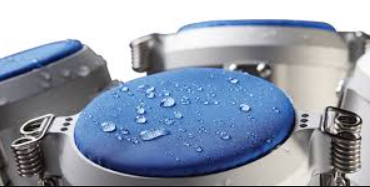🌍 Innovation that Saves Water: Self-Cleaning Materials Revolutionize Industry 💧✨
- Roberto Corona Contreras
- Feb 20, 2025
- 2 min read

The Revolution of Self-Cleaning Materials for a More Sustainable Future
Water waste in the industry is a major environmental challenge. However, a recent scientific breakthrough promises to change this landscape. Researchers have developed self-cleaning materials that repel dirt and liquids, drastically reducing the need for water in industrial processes like manufacturing and transportation.
Inspired by nature, these new materials mimic surfaces like lotus leaves, allowing dirt to simply slide off without human intervention. This innovation not only helps conserve water but also cuts operational costs and reduces environmental pollution.
Nature-Inspired Technology
The innovation relies on nanotechnology, where microscopic surface structures create a protective barrier that prevents liquids and contaminants from sticking. This means less washing and an extended lifespan for materials, reducing the need for harsh cleaning chemicals.
Industries such as automotive, construction, and textiles are exploring its implementation to improve efficiency and sustainability. A car that never gets dirty, buildings that don’t need frequent washing, and stain-repellent clothing could soon be a reality.
Global Sustainability Impact
Every year, industries consume billions of liters of water for cleaning and equipment maintenance. With this technology, water usage could be cut by more than 50%, preventing resource overuse and minimizing ecological impact.
Moreover, by reducing the need for cleaning chemicals, water pollution is minimized, protecting aquatic ecosystems and promoting a greener industrial future.
A Step Towards Efficiency and Savings
Scientists are working on commercializing these materials to make them accessible across various industries. From household appliances to airplanes, the promise of a world where cleanliness is automatic and eco-friendly is within reach.
This breakthrough is a reminder that technological innovation and sustainability can work together to offer real solutions for protecting the planet without compromising industrial progress. 🌎💡










Comments